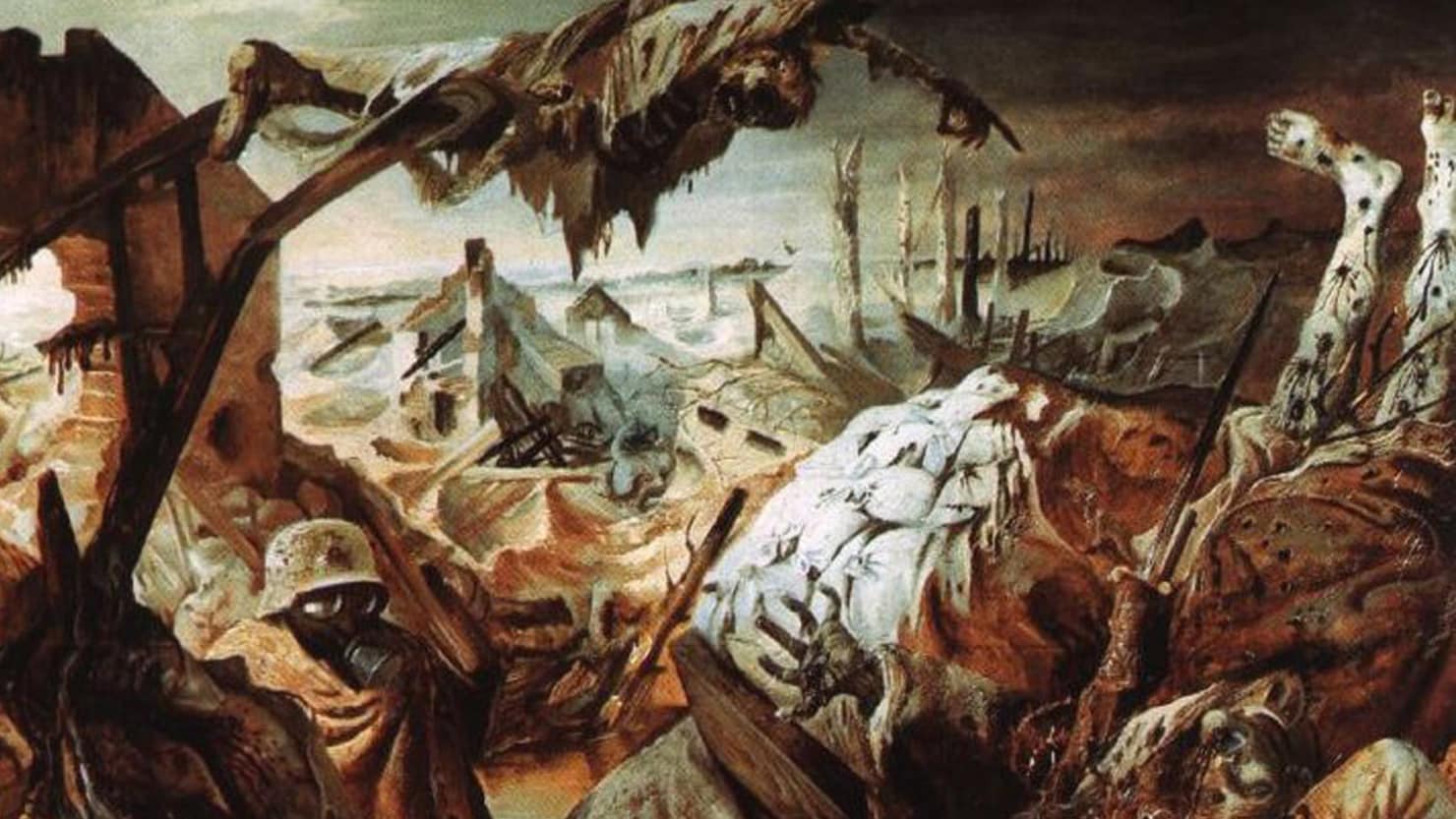Friday
This past Wednesday was the 100th anniversary of Wilfred Owen’s death, which meant that he died exactly one week before the official end of World War I. I’ve written many times about Owen, whom I consider the greatest anti-war poet, and I use one of his poems to honor those soldiers who continue to suffer the psychological horrors of war long after they leave the battlefield.
According to the U.S. Department of Veteran Affairs, 31% of Vietnam vets have PTSD, along with 10% of Gulf War vets and 11 percent of Afghanistan War vets. These numbers contribute to the high veteran suicide rate, about 16 a day.
As awful as these numbers are, statistics alone fail to fully capture what these men endure. That’s why we need poets, who push language as far as it can be pushed. Owen was uncompromising in his determination to show the world what soldiers experience. As he famously wrote in the introduction to his poems before he died,
Above all I am not concerned with Poetry.
My subject is War, and the pity of War.
The Poetry is in the pity.
Owen memorably writes that those suffering from “shell shock” (as PTSD was known then) are “men whose minds the Dead have ravished.” They have been “rucked too thick” in “carnage incomparable and human squander” to ever be extricated. Owen writes that “memory fingers in their hair of murders…they once witnessed,” and he points to how simple every day events bring these memories flooding back:
…on their sense
Sunlight seems a bloodsmear; night comes blood-black;
Dawn breaks open like a wound that bleeds afresh…
As he does in “Strange Meeting,” the poet imagines himself in hell, with the stricken veterans reaching out at him as figures in Dante’s Inferno:
Snatching after us who smote them, brother,
Pawing us who dealt them war and madness.
Mental Cases
By Wilfred Owen
Who are these? Why sit they here in twilight?
Wherefore rock they, purgatorial shadows,
Drooping tongues from jaws that slob their relish,
Baring teeth that leer like skulls’ tongues wicked?
Stroke on stroke of pain, — but what slow panic,
Gouged these chasms round their fretted sockets?
Ever from their hair and through their hand palms
Misery swelters. Surely we have perished
Sleeping, and walk hell; but who these hellish?
— These are men whose minds the Dead have ravished.
Memory fingers in their hair of murders,
Multitudinous murders they once witnessed.
Wading sloughs of flesh these helpless wander,
Treading blood from lungs that had loved laughter.
Always they must see these things and hear them,
Batter of guns and shatter of flying muscles,
Carnage incomparable and human squander
Rucked too thick for these men’s extrication.
Therefore still their eyeballs shrink tormented
Back into their brains, because on their sense
Sunlight seems a bloodsmear; night comes blood-black;
Dawn breaks open like a wound that bleeds afresh
— Thus their heads wear this hilarious, hideous,
Awful falseness of set-smiling corpses.
— Thus their hands are plucking at each other;
Picking at the rope-knouts of their scourging;
Snatching after us who smote them, brother,
Pawing us who dealt them war and madness.
Previous posts on Wilfred Owen
He Sleeps Less Cold Than We Who Wake
Hagel: No Glory, Only Suffering in War
Memorializing Our Lost Innocence
Memorial Day: Anthem for Doomed Youth
Poetry Evolved During World War I
Lamentation and Weeping in Newtown


